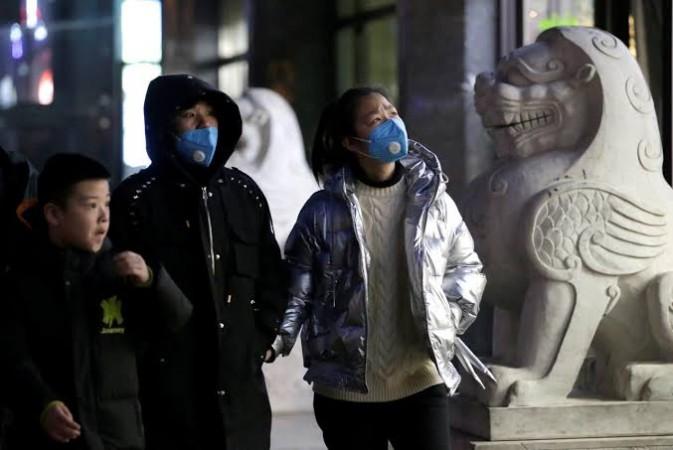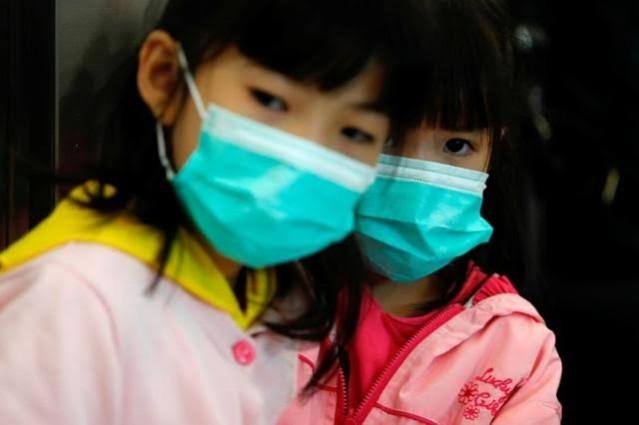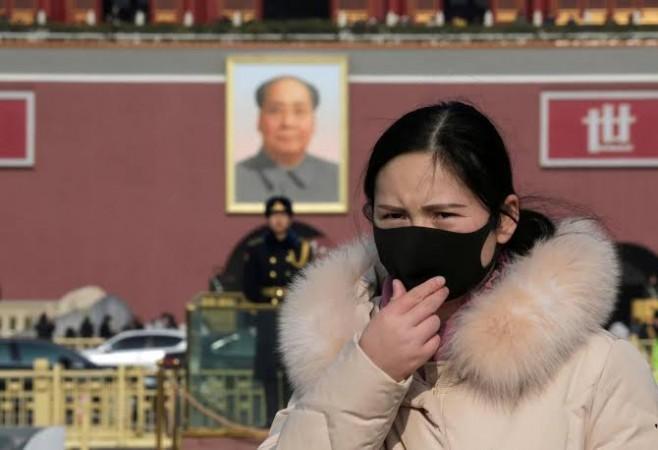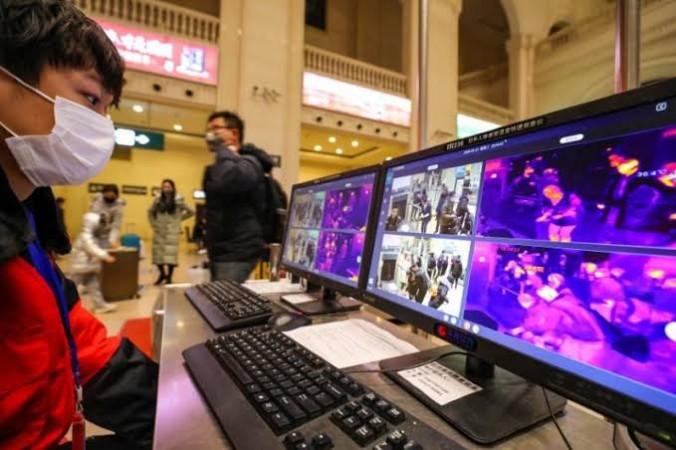With 25 new fatalities reported from China's central Hubei province, the coronavirus death toll has reached 132 and the confirmed infection cases to nearly 6,000. Health experts have warned that the epidemic may reach its climax in the next 10 days resulting in large-scale casualties.
The United States and Japan flew citizens out of China on Wednesday in light of the rising death toll. In Hubei province, of which Wuhan is the provincial capital, 3,554 confirmed cases have been reported with 125 deaths as of Tuesday.

Among the confirmed cases, 1,239 patients are in critical condition, official TV CGTN reported, adding that there are 9,239 suspected cases in the Chinese mainland.
The Hubei province has reported 840 newly confirmed cases, indicating that the virus continues to spread at a faster rate.
The death rate from the new coronavirus is not yet known, as more fatalities will likely be reported. Most patients who have died are above 60 and had pre-existing conditions, according to reports from local authorities.
The World Health Organization (WHO) has said it is confident in China's ability to contain the coronavirus, but concerns are mounting due to the rising cases. The coronavirus can be passed between humans through close contact.
Outbreak reaching its peak
The novel coronavirus (2019-nCoV) outbreak may reach its peak in one week or around 10 days, Chinese respiratory expert Zhong Nanshan said.
"It is very difficult to definitely estimate when the outbreak reaches its peak. But I think in one week or about 10 days, it will reach the climax and then there will be large-scale increases," Zhong told state-run Xinhua news agency.

Zhong is the head of a national team of experts set up for the control and prevention of the novel coronavirus-caused pneumonia and an academician of the Chinese Academy of Engineering.
"There are two keys to tackling the epidemic: early detection and early isolation. They are the most primitive and most effective methods," he said.
Zhong said fever and weakness were the typical symptoms of the novel coronavirus infection found in the majority of patients.
Ten to 14 days is a sound period for isolation and observation. When the incubation period ends, those who fall sick will get timely treatment and those who do not will be just fine, he said.
He suggested that hospitals be staffed with not only infectious disease specialists, but also specialists in treating severe cases to better save patients.
Epidemiologically, the novel coronavirus is homologous to the virus discovered in a type of bat in 2017, said Zhong, adding that the 2019-nCoV probably has an intermediate host that may be a certain kind of wild animal.
"The SARS (Severe Acute Respiratory Syndrome) outbreak lasted about six months, but I don't believe the novel coronavirus outbreak would last that long," said Zhong.

The country has taken a series of powerful measures, especially early detection and early isolation.
"We have sufficient confidence in preventing a major outbreak or a recurrence as long as the two measures are in place, although we still need to conduct much scientific research," he said.
Noting that the key for Wuhan is how to reduce infections inside hospitals, Zhong said he supported the construction of makeshift hospitals in the city to control the infectious disease.
The activation of top-level public health emergency response was aimed at reducing the chance of infection, he said, adding that the vaccine development may need three to four months or even longer.
"Now scientists are speeding up research of neutralizing antibodies of the virus, but it takes time. With help from across the country, Wuhan, a heroic city, will pull through," Zhong said.
All options
As infections spread and the number of cases rises, numerous countries are scrambling to get citizens out of Wuhan, while also hoping to keep the virus at bay.
A US government official who declined to be identified told Reuters a US charter plane had left Wuhan. It had 220 people aboard, a US diplomatic source added, with 50 diplomats and contractors among them.
Australia said it would help some citizens leave and then quarantine them on Christmas Island, a remote speck in the Indian Ocean best known for housing asylum seekers.

US officials said the White House was weighing whether to suspend flights to China in what would be a drastic measure to control the spread of the disease.
"All options for dealing with infectious disease spread have to be on the table, including travel restrictions," said US Health Secretary Alex Azar.
The White House is holding daily meetings on the outbreak and monitoring China-US flights as a likely source of infections, sources briefed on the matter said, though it had decided against suspending air traffic for the time being.
A senior Trump administration official said airlines had not been asked to suspend flights, after CNBC reported that the White House had told airline executives it was considering such a move.
Growing economic concern
The concern is also growing over the impact of the virus on the world's second-biggest economy, with airlines cutting flights to China and global companies restricting employee travel there.
Sectors from mining to luxury goods have been shaken by concerns about the possibility of a worst-case pandemic.
Hong Kong stocks took a beating on the first day of trading after the Lunar New Year break. Casino and financial stocks led the Hang Seng index 2.5 per cent lower to a seven-month trough.

Regional markets, however, arrested their slide, with stocks in Japan, Australia, Korea and India steady or firmer and currencies mostly stable. Chinese markets resume trade on February 3.
In what could be a major step towards reining in the disease, scientists in Australia said they had developed a lab-grown version of the coronavirus, the first to be recreated outside China.
Chinese President Xi Jinping on Tuesday called the coronavirus a "demon" which should be brought under control.








